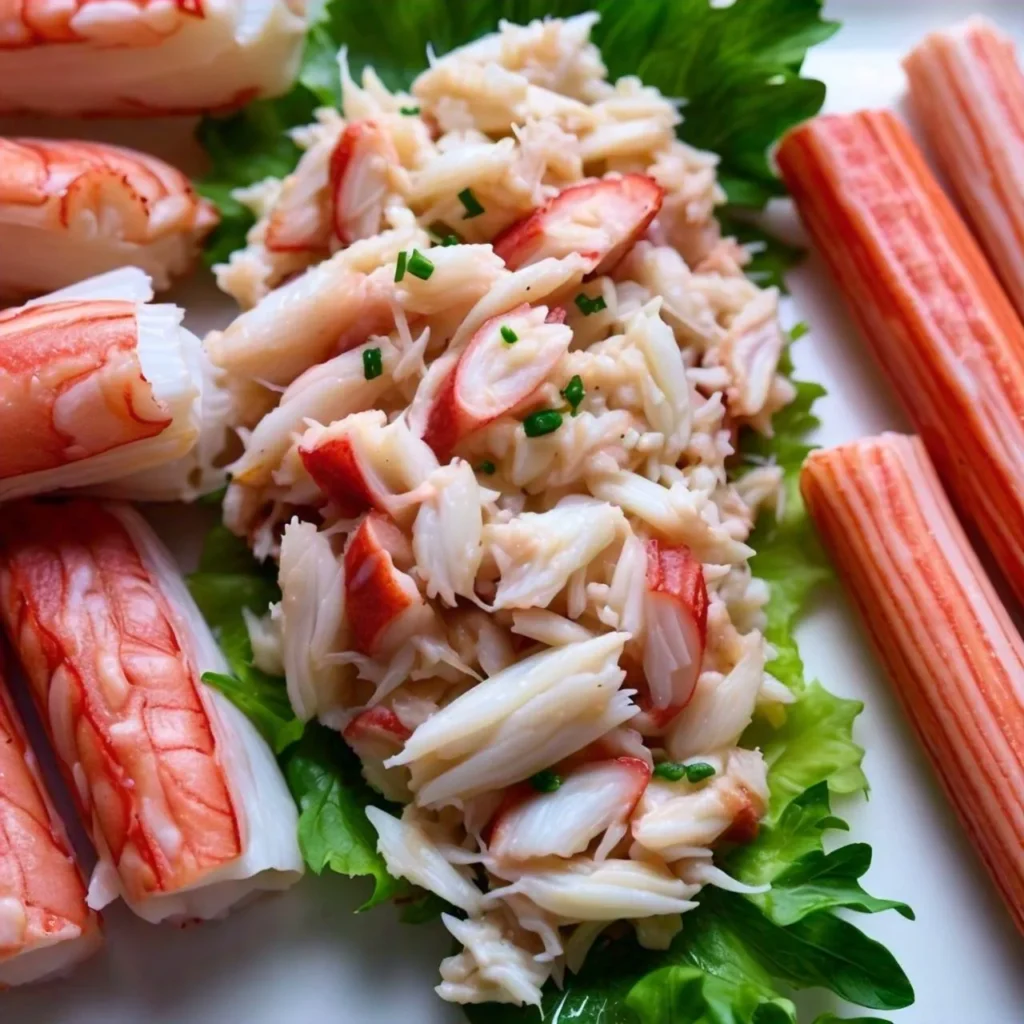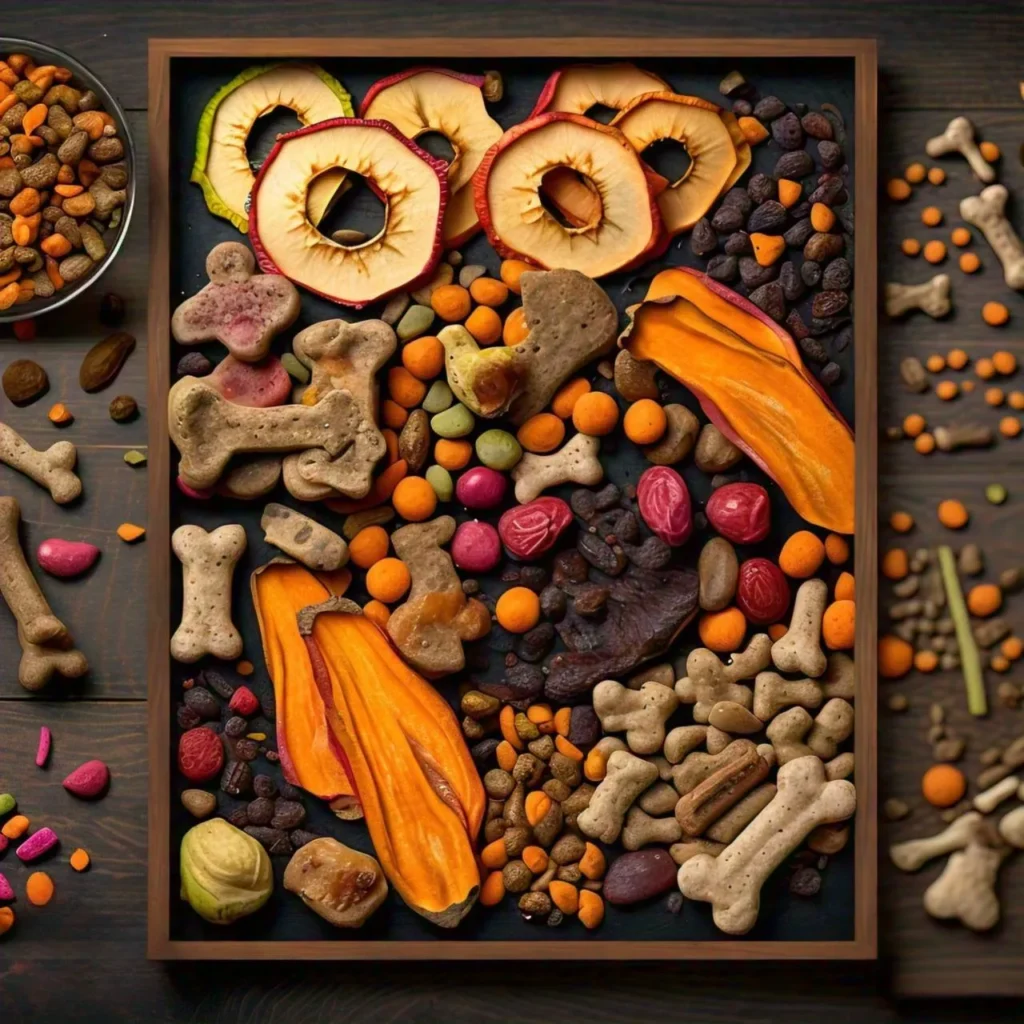As a dog owner, it’s natural to want to share some of your favorite snacks with your furry friend. If you love seafood, especially crab sticks, you might wonder if they’re safe for dogs to consume. Crab sticks are a popular imitation seafood item made from processed fish, often used in sushi or salads. While they might seem harmless at first glance, there’s more to consider before offering one to your pet.
In this article, we’ll explore whether crab sticks are safe for dogs, what they’re made of, and the potential risks involved. We’ll also discuss healthier alternatives you can give your dog and how to handle situations where they’ve eaten something they shouldn’t.
What Are Crab Sticks Made Of?
First, it’s essential to understand what crab sticks actually are. Despite the name, crab sticks (also called imitation crab) don’t typically contain real crab. Instead, they’re made from surimi, which is a paste formed from pulverized white fish like pollock or whiting. Manufacturers often add starch, sugar, artificial flavoring, coloring, and preservatives to make the product look and taste like real crab.
Ingredients in Crab Sticks:
- Fish (usually pollock or whiting): The primary ingredient.
- Starch: Often used to bind the fish paste together.
- Sugar and Salt: These additives enhance flavor but aren’t great for dogs in large amounts.
- Artificial Flavoring: Gives the crab-like taste, which may contain chemicals or additives.
- Preservatives: Added to extend the shelf life of the product.
- Colorants: Used to give the imitation crab its red and white appearance.
These ingredients might sound okay for human consumption, but how do they impact our pets?
Can Dogs Safely Eat Crab Sticks?

The Short Answer: It’s Not Recommended.
While crab sticks are not immediately toxic to dogs, they’re not a healthy treat either. Here’s why:
1. High Salt and Sugar Content
Crab sticks contain both salt and sugar, which are harmful to dogs if consumed in large quantities. Dogs don’t need extra salt or sugar in their diet, and excessive intake can lead to health issues like obesity, high blood pressure, and even sodium poisoning.
2. Artificial Ingredients and Preservatives
The artificial flavoring and preservatives in crab sticks can upset your dog’s stomach or cause an allergic reaction. Some dogs are sensitive to artificial additives, and prolonged exposure could lead to gastrointestinal issues or allergic dermatitis.
3. Low Nutritional Value
While real crab meat offers some nutritional benefits like protein, omega-3 fatty acids, and essential vitamins, imitation crab (crab sticks) is highly processed and lacks these nutrients. Feeding your dog crab sticks won’t provide any real health benefits and may replace healthier snack options.
My Personal Experience as a Dog Owner
A few years ago, my dog, Max, managed to get into a pack of crab sticks I’d left on the kitchen counter. I panicked, unsure whether it would make him sick. Fortunately, Max didn’t have any severe reactions other than an upset stomach and a bit of lethargy for the rest of the day. After that, I researched extensively and consulted my vet, who confirmed that while crab sticks aren’t toxic, they’re far from ideal as a dog treat. Since then, I’ve been more cautious about leaving processed foods within reach, and I stick to healthier, natural treats.
Potential Health Risks of Feeding Crab Sticks to Dogs
1. Upset Stomach and Diarrhea
Due to the artificial additives and preservatives, your dog may experience digestive issues like diarrhea or vomiting after eating crab sticks. Their sensitive stomachs often don’t tolerate processed foods well.
2. Allergic Reactions
Dogs, like humans, can have food allergies. If your dog is allergic to fish or any of the additives in crab sticks, they could develop symptoms such as itching, hives, swelling, or difficulty breathing. If you notice any of these signs after your dog eats a crab stick, contact your vet immediately.
3. Long-Term Health Issues
Regularly feeding your dog processed food like crab sticks could lead to long-term health problems, such as obesity, high blood pressure, or even kidney disease, due to the high salt and sugar content.
What to Do If Your Dog Eats Crab Sticks
If your dog accidentally eats a small amount of crab stick, they’ll likely be fine, but monitor them closely for any signs of discomfort such as vomiting, diarrhea, or allergic reactions. If they exhibit any unusual symptoms, contact your veterinarian for advice.
In larger quantities, the risks increase, so it’s best to be cautious. If you suspect your dog has eaten a significant amount of crab sticks, consult your vet even if they seem fine at first.
Healthy Alternatives to Crab Sticks for Dogs
There are plenty of healthy, dog-friendly seafood options that you can safely offer your furry companion without worrying about additives or artificial ingredients. Here are a few alternatives:

1. Cooked, Unseasoned Fish
Fish like salmon or whitefish is excellent for dogs, as they are rich in omega-3 fatty acids and high-quality protein. Just ensure the fish is fully cooked and free of bones or seasoning.
2. Real Crab Meat
If you’re determined to share seafood with your dog, opt for small portions of real crab meat. Make sure it’s cooked, unseasoned, and free of shells, which can be a choking hazard or cause intestinal blockages.
3. Vegetable Snacks
If you’re looking for a healthy snack, many dogs love veggies like carrots, cucumber, or green beans. These are low in calories and provide beneficial nutrients without any of the harmful additives found in processed foods like crab sticks.
4. Commercially Available Dog Treats
There are numerous healthy, natural dog treats available on the market. Look for options made with whole ingredients, free of artificial preservatives, and designed to support your dog’s overall health.
Final Thoughts: Should You Feed Crab Sticks to Your Dog?
While crab sticks aren’t toxic to dogs, they’re not a safe or healthy option either. The artificial ingredients, high salt content, and lack of nutritional value make them a poor choice for your dog’s diet. If you want to share seafood with your pet, stick to natural, unprocessed options like cooked fish or real crab meat in moderation.
As a responsible pet owner, it’s crucial to prioritize your dog’s health and well-being by offering them balanced, nutritious foods that contribute to their long-term happiness and vitality.
So, next time you’re enjoying crab sticks, it’s best to keep them to yourself and give your dog a healthier treat instead!
FAQs
1. Can dogs eat real crab meat?
Yes, dogs can eat cooked, unseasoned crab meat in moderation. Avoid giving them crab shells, as they can be dangerous.
2. Are crab sticks toxic to dogs?
Crab sticks are not toxic, but they’re not recommended due to their artificial additives, high salt, and low nutritional value.
3. What should I do if my dog eats crab sticks?
Monitor them for any signs of illness. If they’ve eaten a large amount or show symptoms like vomiting or diarrhea, contact your vet.
By focusing on your dog’s health and well-being, you can ensure that every treat you offer is as beneficial as it is enjoyable!
